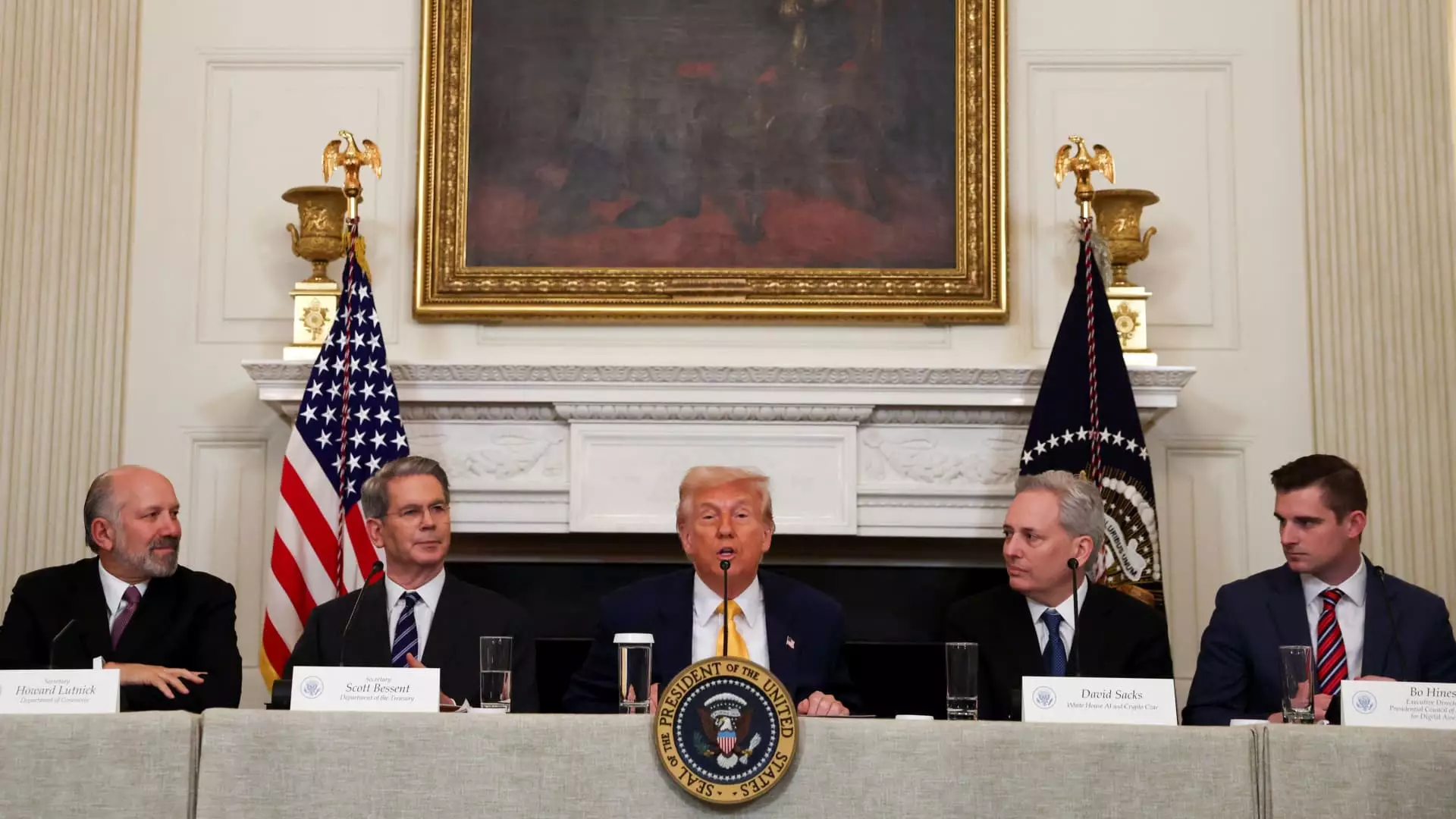In today’s world of finance, the emergence of cryptocurrencies has sparked significant debate, drawing both ardent supporters and fervent critics. At the forefront of this evolving dialogue is Bo Hines, a prominent figure in President Trump’s political landscape and emerging crypto agenda. At just 29 years old, Hines has garnered attention not only for his youth but for his audacious aims to transform the United States into the global hub for digital assets. However, a critical analysis of Hines’s qualifications, strategies, and ethical considerations reveals glaring flaws in his ambitious vision.
Questionable Expertise and Political Ambiguity
To start with, Hines’ professional background raises eyebrows. With only a law degree under his belt, obtained from Wake Forest three years ago, he lacks the extensive experience and specialized knowledge that is usually most beneficial in shaping a complex regulatory environment like cryptocurrency. His previous stints in political campaigns for Congress did not yield success, leaving questions about his electoral support and resonance with the constituents he aims to serve. The juxtaposition of his limited political achievements and his new role as a crypto leader creates skepticism regarding whether he is genuinely equipped to navigate the intricacies of this rapidly evolving field.
His appointment, seemingly favoring youthful energy over seasoned expertise, adds another layer of complexity. While enthusiasm and fresh perspectives are crucial in any leadership position, they must be grounded in substantial knowledge and understanding—two elements that Hines appears to lack. Political maneuvering seems to overshadow technical competency in his approach.
Regulatory Reforms or Regulatory Overreach?
Hines has expressed a desire to overhaul crypto regulation and has noted a keen focus on dismantling what he describes as “Operation Choke Point 2.0.” While the intent to ease burdens on digital companies is commendable, it also raises red flags regarding the potential for regulatory overreach. Hines envisions a landscape where outdated rules are scrapped and replaced with an infrastructure that accelerates growth. But at what cost? Will this new framework sacrifice necessary safeguards in pursuit of technological advancement?
Hines’s assertion that the Biden administration has engaged in “lawfare” against crypto firms could be interpreted as a dismissal of the legitimate concerns around investor protections, fraud prevention, and the accountability of digital currencies. Such statements indicate a possible dismissal of critical regulatory oversight, which should be a paramount concern when drafting policies that affect ordinary citizens’ financial safety.
Conflicts of Interest: The Elephant in the Room
One of the most glaring contradictions in Hines’s narrative is his handling of conflicts of interest related to President Trump’s investments in cryptocurrencies. Hines conveniently sidesteps the ethical implications surrounding Trump’s financial entanglements—ranging from memecoins to a potential crypto bank. By asserting that “he’s an American citizen” with every right to participate in the market, Hines risks normalizing a potentially corrosive intersection of politics and business interests.
This nonchalance regarding glaring conflicts undermines the credibility of both Hines and the crypto agenda they advocate. Can it be accepted that leaders, who claim to champion fairness and transparency, directly profit from the policies they lay out? This concern should cause every American, especially those who might invest in crypto, to question the integrity of such leadership.
The Dollar Versus Digital Gold: A Flawed Economic Perspective
Hines’s ambition of creating a “Strategic Bitcoin Reserve,” while appealing to digital asset enthusiasts, reflects a potentially misguided economic strategy. By comparing Bitcoin to “digital gold” and proposing to amass vast amounts of it for the American people, Hines indicates a troubling misalignment with foundational economic principles.
What is often overlooked is Bitcoin’s inherent volatility, which raises doubts about its viability as a stable reserve asset. Should the government anchor part of its fiscal policy on an inherently unstable investment? This concept dances perilously close to financial recklessness, especially considering that a reserve designed to fortify a nation’s economy should encapsulate stability.
Short-Term Fixes for Long-Term Problems
Finally, Hines’s promise to “move at tech speed” speaks volumes about the urgency surrounding crypto reform—yet it also hints at a superficial approach to deeper, more systemic challenges within the cryptocurrency landscape. Pushback against established entities in the banking sector and creating favorable conditions for digital assets cannot be achieved overnight.
Proposals to redefine IRS rules or reallocate gold reserves without careful consideration of the broader implications could end up backfiring. Such hastiness may lead to backlash not only against the current administration but also against the cryptocurrency movement as a whole, resulting in a loss of public trust crucial for sustainable growth.
While Bo Hines embodies ambition and youthful exuberance, his lack of experience, the potential for conflicts of interest, and an alarming understanding of crypto economics collectively cast doubt on whether he can genuinely lead the U.S. into a prosperous digital future. Addressing the astounding complexities of this new economic frontier requires wisdom and foresight, qualities that seem to be conspicuously absent from Hines’s undertaking.

